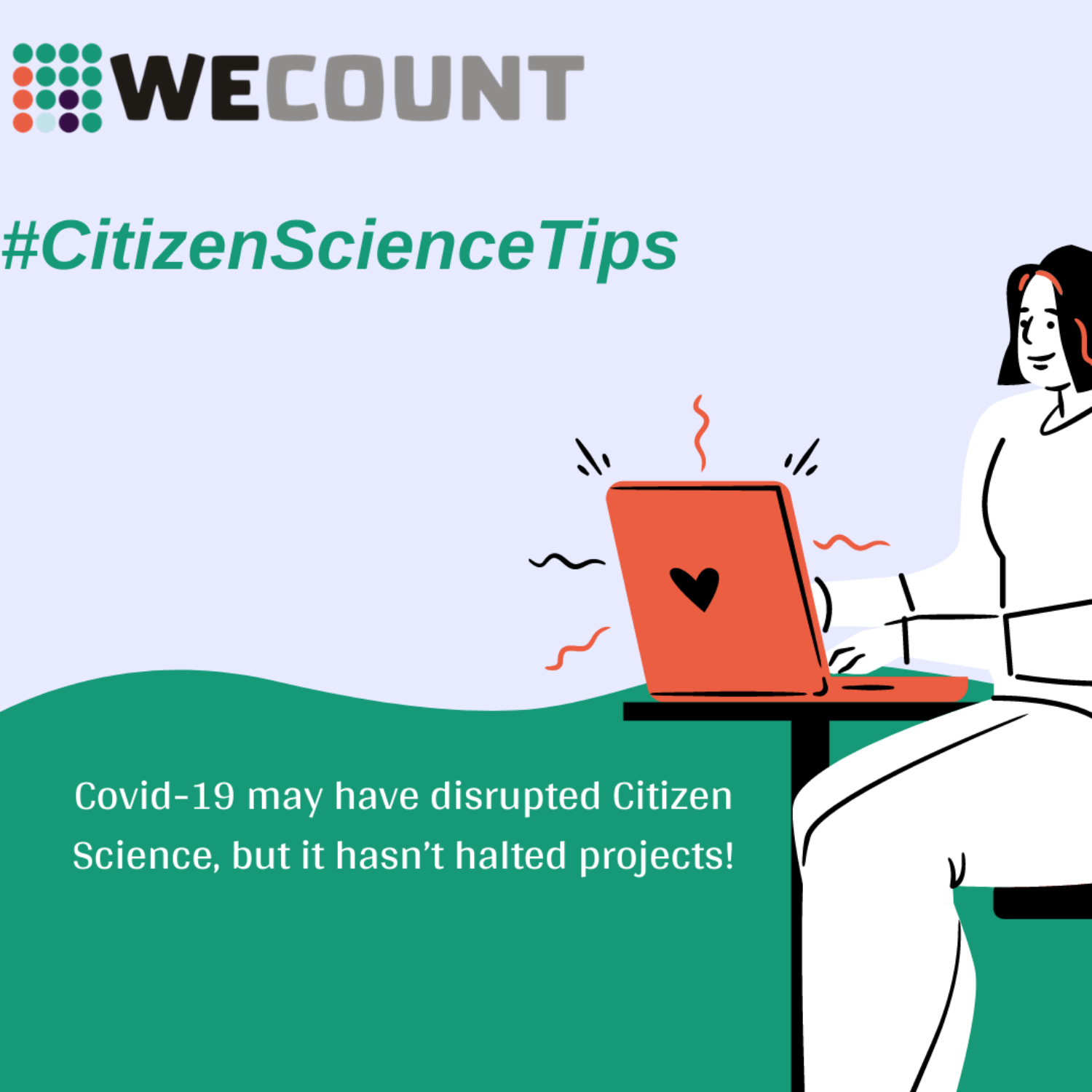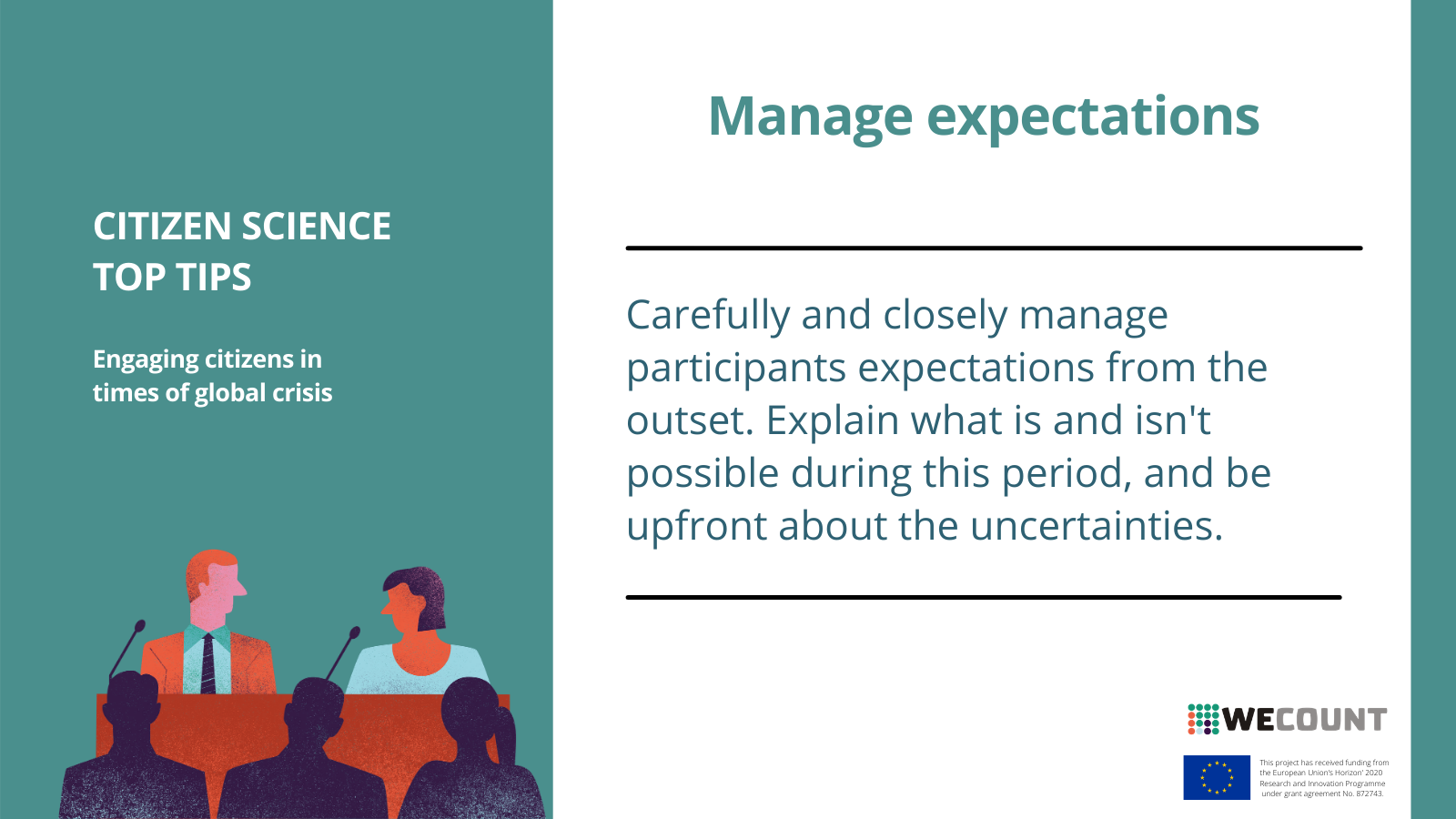
Adapting citizen science to crisis conditions

The Covid-19 pandemic has created new challenges for some citizen science projects, but with hybrid approaches to participant recruitment and engagement, projects can still thrive. WeCount’s series of infographics provides useful advice for creating the flexibility, adaptability, refocus required to overcome crises.
Covid-19 has been tough for science and technology projects. The pandemic rendered conventional research and engagement methods almost impossible, and many were forced to return to the drawing board, or- in some cases- abandon projects altogether.
However, citizen science did not just survive, it flourished. Projects established new and innovative ways of recruiting and engaging participants remotely, and the pandemic actually presented an opportunity for to engage with new individuals and communities. With individuals and families now working from home, combined with the proliferation of online communication technologies, there has certainly not been a short of eager citizen scientists!

Citizen science has, in fact, proved instrumental during the pandemic. While much conventional research came to a screeching halt in March 2020, as laboratories were shut and workshops closed, citizen scientists were still able to conduct their experiments from home.
Nonetheless, there have been tough challenges. Training participants to use technologies has been complex. As WeCount’s Giovanni Maccani and Lucia Errandonea stated when reporting on traffic count pilots in Madrid, the project had to revise its approach and create online tutorials for participants. Yet, by utilising hybrid online and face-to-face (where possible) instruction, the project was able to proceed- with immense success.
Drawing from these challenges and solutions, we have developed a series of useful infographics for sharing advice on how to overcome the difficulties posed by crisis situations. For example, when face-to-face events became impossible, WeCount moved towards online campaigning, using social media, as well as more intimate group sessions through platforms including Zoom and Microsoft teams- which proved effective for engaging those struggling to access or trust digital technologies.
We hope you find them useful. As we have always said, if projects are to be successful, they must learn from one another!
Download the infographics here
For further information on WeCount’s approaches to hybrid research check out our webinars and news articles.
Make sure to also check out WeCount’s 1st Policy Brief: Hybrid citizen engagement approaches to deliver citizen-led project results in times of a pandemic.
To share your experiences follow us on Twitter or LinkedIn, and share your thoughts #CitizenScienceTips